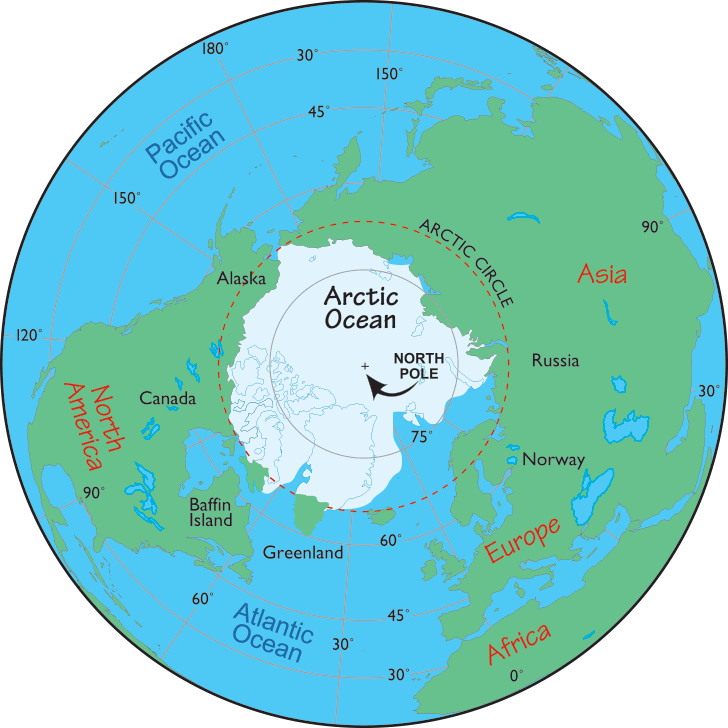Arctic

Arctic Map
The Arctic is a region of the planet, north of the Arctic Circle, and includes the Arctic Ocean, Greenland, Baffin Island, other smaller northern islands, and the far northern parts of Europe, Russia (Siberia), Alaska and Canada.
The Arctic Circle, incidentally, is an imaginary line located at 66º, 30'N latitude, and as a guide defines the southernmost part of the Arctic. The climate within the Circle is very cold and much of the area is always covered with ice.
In the mid winter months, the sun never rises and temperatures can easily reach lows of - 50º F in the higher latitudes. In the summer months (further south), 24 hours of sunlight a day melts the seas and topsoil, and is the main cause of icebergs breaking off from the frozen north and floating south, causing havoc in the shipping lanes of the north Atlantic.
The primary residents of the Arctic include the Eskimos (Inuits), Saami and Russians, with an overall population (of all peoples) exceeding 2 million. The indigenous Eskimos have lived in the area for over 9,000 years, and many have now given up much of their traditional hunting and fishing to work in the oil fields and the varied support villages.
The first explorers of the Arctic were Vikings. Norwegians visited the northern regions in the 9th century, and Erik the Red (Icelander) established a settlement in Greenland in 982. In 1909, after numerous attempts by regional explorers, Robert E. Peary reached the North Pole.
Arctic Links
Please find below several links with more information from
World Atlas










